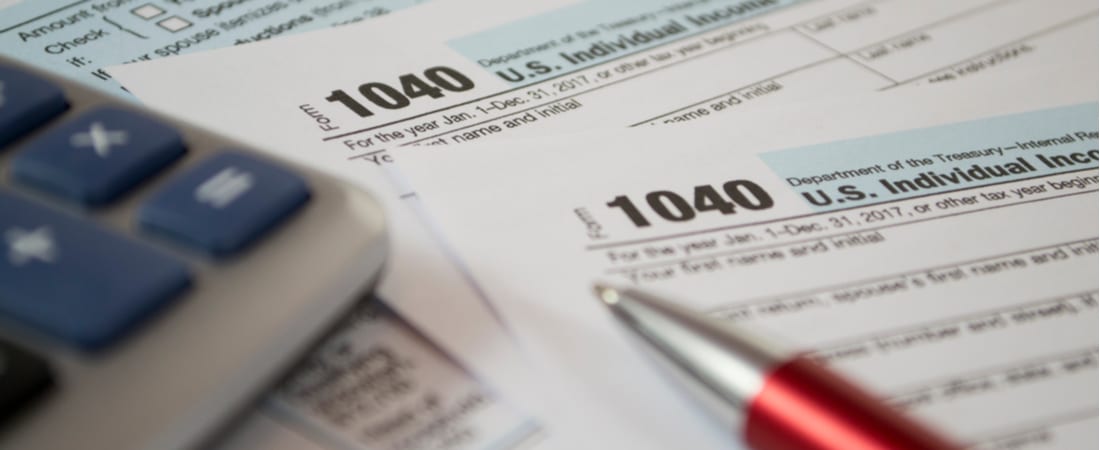4 common errors to avoid when filing your taxes. How to avoid errors that could delay your tax refund or require a lengthy amendment process.
Everyone makes mistakes, but if your mistake happens to come in the middle of filing your taxes, you may find yourself facing a delayed refund (if you’re owed one), or a lengthy amendment process.
According to the IRS, people who manually file their tax returns are about 20 times more likely to make mistakes than those who e-file with tax preparation software. E-filing may help reduce some errors by allowing a computer program to automatically run mathematical calculations for you, but even then, those calculations are only as good as the accuracy of the person entering the numbers into the system. A single typo could add up to a huge headache.
Some errors may also cause the IRS to assess penalties and interest, says Bryan Krueger, a CPA and Director of Tax Strategies for Clayton, Mo., wealth management firm Moneta Group.
4 Common Errors to Avoid When Filing Your Taxes
Here are some common tax errors to watch out for when filing your taxes.
1. Incorrect or Missing Numbers
Filing your taxes involves a lot of numbers. Aside from the dollar amounts, there’s also your social security number, bank account number for receiving your refund via direct deposit, and your IRS issued e-file PIN. Incorrectly entering—or forgetting to enter—any of these numbers could delay any refund you may be expecting.
2. Misspelled Names
Names on your tax forms should be spelled exactly as they appear on your family member’s social security cards.
3. Errors in Your Filing Status
Some people mistakenly file their taxes with “Head of Household” filing status instead of “Single,” according to the IRS. While you may consider yourself the head of your household if you’re the only person living in it, “Head of Household” generally implies an unmarried individual living with a partner, who is also responsible for over half of the household’s regular expenses. “Single” filing status, on the other hand, encompasses any unmarried or divorced persons responsible their finances alone.
If you’re not sure what filing status fits your situation, check the IRS’ Interactive Tax Assistant, which can walk you through a variety of tax topics.
4. Incorrectly Carrying Over Losses or Deductions
The federal government allows taxpayers to claim up to $3,000 in investment losses per year, Krueger says. If you lost more than that, the loss amount beyond $3,000 can be carried over to the next year, otherwise known as a carryforward.
“Sometimes I’ll see self-prepared returns that don’t consider carryforwards [from a previous year’s losses],” he says. Not counting these carryover losses can mean you’re accounting for a higher income than necessary.
Correcting Your Errors
If you realize you’ve made an error on your taxes, don’t panic. You will, however, need to file an amended return, Krueger says. Taxpayers have up to three years from the date they originally filed to process an amended return. Failure to amend when possible may result in future filing difficulties and additional fees down the road.
There are also steps you can personally take that may help reduce the possibility of errors–even before you file. This includes using tax preparation software that can check information or hiring a professional tax preparer.
Krueger says that, in his experience, using a tax professional to handle the nuances of filing is a strong first line of defense to cutting out errors you would have otherwise made yourself.
Comparing this year’s tax return to last year’s can also help you catch mistakes. If there were no major changes to your financial situation, Krueger says your tax refund should be close to the same amount it was last year.
Many tax preparation software programs will make this comparison for you and alert you if the returns seem drastically different.
And, of course, whichever method you choose should always include thorough proofread. Carefully checking your tax return before you file may help you avoid costly penalties, get a refund as quickly as possible, and help reduce your overall stress level through tax season.
More on Topics Related to Taxes
Tax Return 2020: How to Spend Your Refund
Filing Income Taxes When You Move Out of State
7 Big Life Events That Might Impact Your Taxes
Could Unpaid Debt Affect My Tax Refund?
4 Common Errors to Avoid When Filing Your Taxes
4 Things Real Estate Investors Should Know at Tax Time
Seven Last-Minute Tips to Maximize Your Tax Refund
What to Know When Filing a Tax Extension
Choosing the Right Tax Professional
Can My Ex Claim My Child When Filing Taxes?
What to Do Now If You Can’t Pay Your Taxes in April
6 Questions to Ask Your Tax Preparer
How Is My End-of-the-Year Bonus Taxed?






